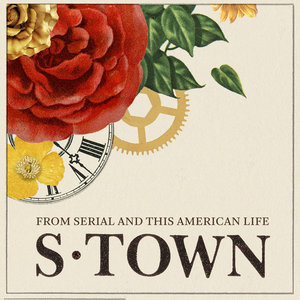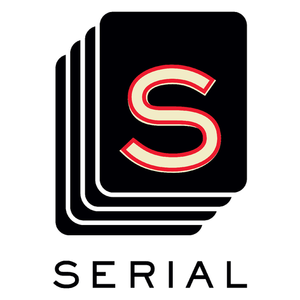Our Technology
PRX's technology enables talented creators and engaged institutions to bring compelling audio stories to millions of people.
Our Products
PRX Exchange
Public radio broadcast marketplace with automated distribution
The Exchange is an open audio distribution marketplace. Producers can upload audio stories of all types — from documentaries, to music specials, to weekly series — that are then licensed and played on-air by radio stations across the country.
PRX Dovetail
Content management and podcast publishing, analytics, and scalable dynamic ad serving
Publish your podcasts with ease and understand how users access your content. Our platform provides unparalleled reach, monetization, and performance for our premiere partners Radiotopia, Night Vale Presents, Gen-Z Media, GBH, TRAX, and others.
Please visit our support page for technology questions.
Our Commitment to Privacy
PRX is taking the lead in establishing privacy standards that ensure the safety of our audiences while maximizing revenue opportunities. We closely monitor the latest privacy laws and standards, and are committed to implementing sound practices that don’t put our partners at risk with current or expected changes.
We support targeting based on information from user requests, but don’t support combining our requests with any unauthorized personal data.
PRX’s privacy standards have become a true differentiator for like-minded partners who care about the trust our audiences place in us.
PRX Privacy Symposium: Emerging Threats to Podcasting’s Open Ecosystem
In early 2020, PRX hosted a symposium for leaders in podcasting, data privacy, open technology, law, and public media to imagine a future for podcasting that is open, sustainable, and respectful of privacy. This event was supported by Alfred P. Sloan Foundation and Journalism + Design at The New School.
A History of Innovation
Fifteen years ago, PRX created the Public Radio Exchange (now PRX Exchange) to solve a problem. Painstakingly produced radio stories often aired once and were lost. No one had created an efficient, cost-effective, streamlined archive or licensing mechanism to get the work out, both to local stations and beyond. PRX solved this problem by building a custom distribution marketplace that used innovative technology to smooth the friction of uploading and licensing. The result is diverse choices for program directors and more opportunities for creators.
In 2005, before iTunes even included podcasts, stations needed a way for listeners to easily find and download their podcasts. Using open-source technology, and with support from the Surdna Foundation, we built Pubcatcher, a desktop podcasting app for stations to curate lists of podcasts for their listeners, helping them subscribe and listen on their computers and iPods.
After the iPhone launched, PRX innovated by building the industry's first iPhone application, the Public Radio Player. We built iPhone and Android apps for public radio's largest shows including “This American Life,” “Radiolab,” and “The Moth” and for the largest stations including WBUR, WNYC, GBH, KCRW, and KQED. Our experience in making the Public Radio Player led us to believe there was a need and an opportunity to create a better listener experience that would support producers and the growing podcasting ecosystem. And so, RadioPublic was founded with two of the leaders from the PRX Tech Team to take on this challenge as a public benefit corporation.
In 2012, PRX launched a delivery service for broadcast shows, handling subscription, carriage billing, automated delivery, and integration with station automation systems. Broadcast is our foundation, but it was just the beginning.
We developed PRX Dovetail as a podcast hosting and dynamic ad insertion platform to better support podcasters. In 2015, “Serial” launched its second season on Dovetail, putting the platform to the test and on full display. Since then, we have expanded its capabilities with real-time metrics, and sharable players, while also expanding with more partners like TED, The Moth, and all of Radiotopia.
CASE STUDY
PRX's Dovetail on Serial and S-Town
The launch of Serial's second season put our dynamic ad server to the test. With the largest audience in podcasting anxiously awaiting each episode, their enthusiasm translated into unprecedented downloads. We built Dovetail to scale, but “Serial” proved it, bringing us to new levels of performance and dependability. As rapt fans woke early for episode drops, Dovetail gave every download request its own consideration, its own announcements, and its own sponsorship messages stitched in along with the groundbreaking show.
But if each “Serial” episode was a mountain of demand, then “S-Town” releasing their entire season at once was the Himalayas — initial morning traffic was roughly quadruple that of “Serial,” and just kept going, with binge listeners raising the load in the evening, peaking above the initial burst.
“S-Town” and “Serial” were unprecedented in all ways, not including their strain on Dovetail. Battle-tested by these giants, it's ready for however big a show or podcasting listening may grow.
“On ‘Serial’ season two, we had so many campaigns governed by different variables — date, impression goal, episode, etc. — coupled with a very high rate of downloads, that it would have been impossible to flight the creative without a super flexible ad serving system. PRX pulled it off with Dovetail. It had a huge effect on our ability to monetize the season’s 100M+ downloads. And on ‘S-Town’ PRX used Dovetail to help us solve another puzzle—namely, how could we maintain seamless music under dynamic postrolls? PRX's creative solution preserved the sound of the show through the last second of the credits. ” — Seth Lind, director of operations at ‘This American Life,’ ‘Serial’ and ‘S-Town’
CASE STUDY
TED Audio Collective and Dynamic Audio Insertion
The TED Audio Collective is a collection of podcasts for the curious. They're for listeners as excited by psychology and design as science and technology — who want to dig deep into today’s most exciting ideas. PRX Dovetail’s infrastructure was the foundation for TED Audio Collective’s 'surprise and delight' experiment, a creative audio injection approach to increase podcast discovery across their network of shows.
Their flagship show “TED Talks Daily” is consistently ranked in the top 20 podcasts for US monthly audiences by Podtrac, and even fractional audience transfer from this property to others in their portfolio would increase their overall reach while deepening the loyalty and association with the TED audio brand. Using PRX Dovetail’s Dynamic audio insertion technology, TED was able to share selected TED Audio Collective episodes with the global listening audience of “TED Talks Daily.”
Dynamic audio insertion is used most for ads and sponsorship in podcasts, and more broadly, any messages that support a show’s growth.
For TED, increasing the audience of the shows across the TED Audio Collective helps support the growth of individual shows and of the network at large. The mystery episode of “TED Talks Daily” was downloaded 10% more than usual episodes over a seven-day period, and 7% more over an eighteen-day period and two shows saw a noticeable increase in unique listeners in the two-week period following their mystery episodes.
“The Mystery Episode” is a nice progression in testing Dovetail’s insertion capabilities beyond monetization. What we’ve seen thus far, is that dynamic insertion is not only a great way to experiment with new content, but also a way to repurpose content from the same feed and introduce your audience to new shows altogether. Experiments like these push the way we think about our technology and move the podcast industry forward with fresh experiences for listeners. As more publishers use Dovetail, we’re eager to see what other opportunities arise.






